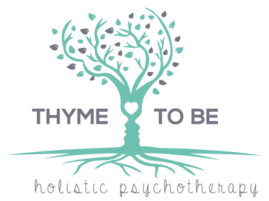Have you ever felt like an entire day disappeared just waiting for an appointment? Or said yes to an enthusiastic “We must meet for coffee!”—because that’s just what people do—only to spend the next few days (or weeks) dreading it? And heaven help you if the invitation is for months in the future!
While we all experience anxiety at times, many autistic people, myself included, rely on structure and predictability to feel secure. This need for certainty isn’t just a preference—it’s often essential for well-being, and when it’s missing, many autistic people can feel drained of energy, which makes it difficult to focus, relax, or be present in the moment.
Within relationships, it can be hard for a friend or partner to understand why something as seemingly simple as a coffee date feels overwhelming. Likewise, an autistic person may struggle to explain why the uncertainty is so consuming. Cue the frustration of mutual misunderstanding.
So how can you support yourself—or a loved one—when uncertainty feels unbearable?
1. Where possible, reduce the uncertainty
While you can’t eliminate all uncertainty, reducing unnecessary unknowns can make a huge difference.
• Gather details in advance. If an event or appointment is causing stress, ask for specifics—where it will be, how long it will last, is there a dress code, and generally, what to expect.
• Clarify expectations. If a friend suggests meeting up, ask for details early instead of leaving it open-ended. Or, if you prefer, organise the meet-up, and share the details with your friend.
• Create a ‘go-to’ plan. If last-minute changes happen, having a backup plan (such as a familiar café or a shorter meeting time) can provide a sense of control.
2. Use ‘Previewing’ to Ease Anxiety
Previewing—mentally or visually rehearsing an event—can help when preparing for the unknown.
• Research locations online to familiarise yourself with the journey and environment before going.
• Use scripts or templates for common situations, like declining an invitation or requesting accommodations.
Visualise the experience. Walking through an events in your mind can help it feel more predictable.
3. Plan for Recovery Time
• Leave space before and after stressful events. If an appointment or social event takes a lot of mental energy, schedule downtime before and after.
• Use sensory regulation strategies. Weighted blankets, fidget tools, deep pressure, or movement can help with post-event decompression.
• Have a post-event routine. Something predictable, like a favourite meal or quiet activity, can provide a sense of grounding after facing uncertainty.
4. Balance Predictability with Manageable Flexibility
Rigid routines can provide comfort but can also make change feel even more overwhelming. Gradually introducing flexibility in a controlled way can help to build tolerance.
• Start with low-stakes changes. Try something small, like switching up a familiar routine just slightly (e.g., ordering a new side dish alongside your meal at a known restaurant).
• Pair uncertainty with a comfort item. If a new experience is stressful, bring a familiar object, playlist, or person, to help you to stay grounded.
• Use a ‘predictability buffer.’ Instead of forcing spontaneity, set up structured flexibility. For instance, advanced planning for several activities that could be undertaken ‘spontaneously’, thus allowing yourself to retain an element of control.
5. Communicate Needs Clearly
If uncertainty is impacting your relationships, open communication can help to bridge the gap between different ways of processing the world.
Let loved ones know what helps. For instance, “Last-minute plans make me anxious, but I’d love to plan something a week in advance,” gives others a way to support you.
• Explain that uncertainty, not the person, is the challenge. Instead of “I don’t want to go,” try “I find uncertain plans stressful, but I appreciate the invite.”
• Work together to find middle ground. If a partner or friend needs spontaneity, set up a ‘safe’ way to incorporate it, like pre-planning flexible days where changes feel more manageable.
Final Thoughts
Uncertainty is a part of life, but for many autistic people, it can feel all-consuming. Small, intentional changes can help make it more manageable, without forcing yourself (or a loved one) into overwhelm. By reducing unnecessary unknowns, planning for recovery, and introducing flexibility at a comfortable pace, you can create a life with both stability and room for growth.
If uncertainty affects your daily life or relationships, know that you’re not alone. Small adjustments can make a big difference. Try implementing one strategy today, or share this with someone who might benefit. Need further support? Consider speaking with a therapist who understands neurodivergent experiences.
Authored by Karen Morris, Relationship Specialist
